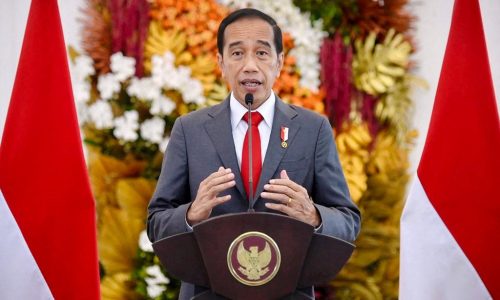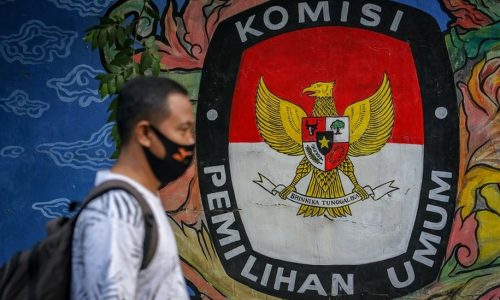In recent years, Chinese investors and venture capital firms have invested billions of dollars in Indonesian start-ups and unicorns such as Tokopedia, Gojek, Bukalapak, and Traveloka.
Data from Bisnis Indonesia Resource Center show that Alibaba has begun its investment in Indonesia through two e-commerce companies, namely Lazada and Tokopedia. On April 11, 2016, Alibaba Holding Ltd invested US$1 billion in Lazada, a Singapore-based e-commerce platform which operates in Indonesia, Malaysia and the Philippines. Alibaba injected another US$1 billion a year later, on June 29, 2017, to Lazada.
Alibaba strengthened its grip on Tokopedia, Indonesia’s e-commerce market. The company invested US$1 billion in Tokopedia, which was established by William Tanuwijaya on August 17, 2017.
Alibaba, through its subsidiary of Ant Group, joined Indonesian investor Emtek and the Government of Singapore Investment Corporation Private Limited to invest US$1 billion in Bukalapak, a competitor for Lazada and Tokopedia.
Along with its e-commerce operations, Alibaba also invested in ride-hailing apps of Grab, e-wallet companies Dana and Akulaku, Bank Neo Commerce, Bank Capital, and Bank Aladin Syariah.
Indonesia’s large market has also enticed another Chinese technology investor, Tencent Holdings Ltd, to invest in the country. Founded by Ma Huateng, the company financed Sea Ltd. and Gojek.
The Crunchbase data indicate that on March 6, 2019, Sea Ltd invested US$1.4 billion in Singapore-based e-commerce company Shopee. Shopee operates in Indonesia, Malaysia, Thailand, and the Philippines.
Tencent has also invested in the e-commerce platform JD.com. JD.com participated in several financing rounds for the Indonesian travel platform Traveloka between 2017 and 2019. JD.com also invested US$100 million in Gojek in 2017.
Tencent is listed as one of the investors in Indonesia’s ride-hailing service Gojek. Tencent injected between US$100 million and US$150 million in the unicorn in 2017, according to Bisnis Indonesia Resource Data Center. There are currently 2.5 million drivers working as Gojek partners.
Huge potential
Nailul Huda, a researcher at INDEF (Institute for Development of Economics and Finance), explained that Chinese investors entered the Indonesian market due to the country’s immense potential in the digital economy. Its large population and high Internet penetration has made Indonesia as the largest market share in Southeast Asia in digital economy.
Indonesian society has also shifted its consumption patterns from offline to online. The middle-income population is primarily supported by millennials and Gen Z, who are highly accustomed to using technology and the internet.
The COVID-19 pandemic that hit the country since March 2000 has prompted the behavioral change of customers. Moreover, the government has imposed public activity restrictions (PPKM) to curb the virus from spreading thus forcing citizens to shop online.
“Accordingly, Indonesia’s market share can bring investors enormous profits. Besides that, it can also benefit the development of their products since investors can share data about Indonesian consumers with other companies,” he told Indonesia Business Post.
Finance for start-ups will positively affect Indonesia, as start-ups require investment funds. Furthermore, the entry of Alibaba and Tencent will boost investors’ and global digital companies’ optimism regarding Indonesia’s digital start-ups.
Goals
Bhima Yudhistira, a researcher at the Center for Economic and Law Studies (CELIOS), outlined several objectives for foreign investors to invest in Indonesian start-ups and unicorns.
First, horizontal integration is used. Indonesian start-ups serve as supply chains for products of other companies. E-commerce unicorns, for example, are used to market products from Taobao and Alibaba in China.
“This integration involves outsourcing IT resources or highly qualified labor to investors’ affiliate companies,” he said.
Second, encouraging the establishment of aggregators that will absorb and facilitate the sale of products by small and medium enterprises. Logistics, quality control, and mentoring are some of the functions of aggregators.
Third, foreign investors have dramatically increased consumers’ dependency on services or applications. For example, Gojek and Grab (PT Grab Teknologi Indonesia) conduct promotions and offer endless discounts on online transportation as well as other service such as food delivery. Furthermore, they offered discounts of 90% or cashback.
“A value-driven strategy seeks to create barriers for competitors. If they control the market share, consumers have no alternative but to turn to unicorns or start-up products. This could undermine a healthy competitive environment,” he said.
Fourth, personal data may be used for marketing or market research purposes. Using big data, they can map consumers’ behavior in Indonesia to market products from their affiliated companies.
Personal data protection
Huda noted that China’s entry to Indonesian market has raised concerns about data security. Third parties in China may use Indonesian citizens’ personal information. Indonesians are at risk if their personal information is not protected.
Wahyudi Djafar, deputy director of the Institute for Policy Research and Advocacy (ELSAM), explained that China adopted the Personal Information Protection Act in October 2021, which became effective in November 2021. China’s information protection law applies only to private sector.
China also has Data Security Act and personal information protection act. Following the Data Security Act, Chinese companies and private companies must process all personal information within China. It is a policy governing the localization of data by Chinese companies that deal with personal information.
The Chinese government’s Cyber Administration Agency carries out the processing of personal data, which raises concerns regarding data security.
“There are concerns here about the possibility of data being spied on during the processing in China. China-based companies process personal data of Chinese citizens and other countries’ citizens in other countries, as part of their obligation to process data there,” said Djafar.
The Indonesian government must investigate whether China’s Cyber Administration Agency can guarantee the protection of private information of non-Chinese citizens or whether it acts as a state surveillance agency. “This is the question,” he replied.
In his view, Indonesia must provide strong legislation on the protection of personal data, and Indonesia’s data protection law is on an equal footing with China’s in its implementation. Thus, the Indonesian law protecting personal data can protect the personal data of Indonesian citizens being processed in China.
Currently, Indonesia lacks a comprehensive law covering personal data protection for its citizens.
“The rights to data privacy is based on the principle of a human-centered approach,” Djafar said. “We follow the law wherever data is processed, whether in China or elsewhere.”









